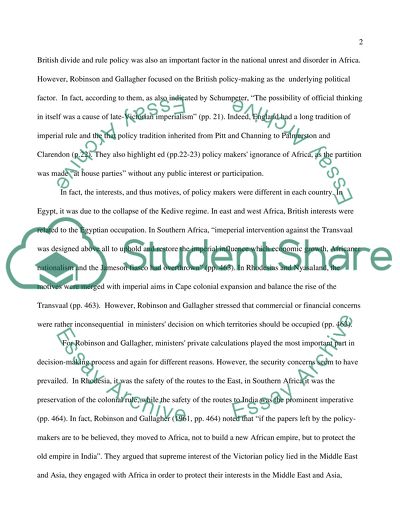Cite this document
(“British Imperialists' Motives in Scramble for Africa Essay”, n.d.)
Retrieved from https://studentshare.org/environmental-studies/1411451-british-imperialists-motives-in-scramble-for-africa
Retrieved from https://studentshare.org/environmental-studies/1411451-british-imperialists-motives-in-scramble-for-africa
(British Imperialists' Motives in Scramble for Africa Essay)
https://studentshare.org/environmental-studies/1411451-british-imperialists-motives-in-scramble-for-africa.
https://studentshare.org/environmental-studies/1411451-british-imperialists-motives-in-scramble-for-africa.
“British Imperialists' Motives in Scramble for Africa Essay”, n.d. https://studentshare.org/environmental-studies/1411451-british-imperialists-motives-in-scramble-for-africa.


